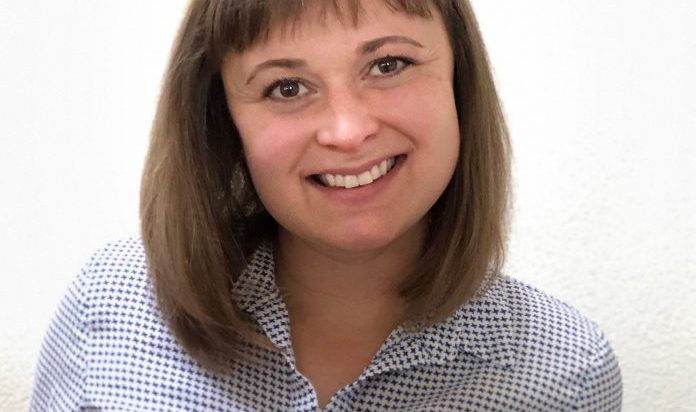How a Boot Camp Project Led to a New Job in Coding for Meghan Morris

With both a journalism degree and a master’s in business administration, Meghan Morris’s career centered around strategic communications for 10 years. While working as a communications and change management senior analyst at Willis Towers Watson, Meghan created solutions for client HR teams, such as microsites and mobile apps, to help them communicate with their employees about their healthcare.
Secretly, Meghan always wanted to understand what went on behind the scenes when her contracted development team built these mobile apps. After quitting her job to take care of her newborn who had some health concerns, she decided to take things into her own hands, enrolling in the University of Denver Women’s Coding Boot Camp.
“I took the initiative to enter an all-women’s boot camp for the opportunity to learn to code in an inclusive and team-oriented environment,” said Meghan.
The boot camp proved to be everything she hoped—and more.
Finding a supportive environment
Entering the boot camp, Meghan felt nervous. She had little experience in coding, so it was a relief to find that many other participants in the boot camp were in the same boat as she was. Only one student had experience in coding. The others were starting an entirely new chapter in their lives—for themselves, and for their families.
Meghan felt a particular kinship with the other mothers in the program.
“It was a really supportive environment,” she said. “If someone had a big work commitment or needed to care for a child, everyone was really understanding.”
Meghan was supported by the skilled instructors and TAs, all of whom were women. The program’s structure also helped her find her footing—the boot camp regularly held review sessions before and after office hours, which allowed many students to keep learning outside of class.
Working on meaningful projects
During her time at the boot camp, Meghan worked on three group projects. Her first consisted of building a recipe site, using two APIs, that worked together to gather both recipes and their nutritional information, based on search queries. The second was a user-focused green-living app. It calculated your personalized carbon footprint based on a form that gathered your information, and also provided resources on living a greener lifestyle.
It was the third project, though, that meant the most to Meghan.
“My last project actually helped me to get into the position I’m in now,” she said. “Another student and I built a learning portal for web developers to learn about web accessibility.”
The learning portal incorporated the Web Content Accessibility Guidelines in the application’s flashcards and quizzes. These interactive elements guided developers through important accessibility considerations to help them build web applications that provided a better experience for all users. A custom Google search was also added so users could find specific information on web accessibility topics.
“The inspiration for building the site was because we wanted to make our project accessible,” said Meghan. “We realized how much content was out there about web accessibility, and it was difficult to know where to begin implemented accessible elements into our site. This is why we chose to switch gears and make accessible web applications our project focus.”
Solving real-world problems
As part of the boot camp experience, students are tasked with presenting what they’ve worked on. On the day of the project presentations, Meghan noticed an interesting trend among the female participants.
“Everyone was focused on cause-related topics,” she said. “I could see a lot of them being used in communities to help people with their everyday lives.”
Putting yourself out there
After graduating, Meghan used the recommendations from her boot camp’s TAs and instructors to find industry events and look for networking opportunities. One such event was the Lady Coders Conference in Denver.
There, Meghan met a woman working on the recruitment team at the Blind Institute of Technology (BIT). She knew of a position available at a healthcare company who was looking for an accessibility design specialist.
After interviewing for the job, the company found its perfect fit—Meghan understood the industry, could write up code recommendations, and possessed the empathy to learn more about the user experience.
Meghan’s daily work now consists of building proofs of concepts for components on the company’s website and mobile applications, as well as providing recommendations to increase the company’s accessibility for all users.
Be confident—you’re going to know little at first
For those considering signing up for a coding boot camp, Meghan has one core piece of advice to share.
“It’s OK to not know anything about coding on your first day of the boot camp,” she said. “The boot camp is great for teaching you not only how to code but also how to debug your code and find answers to your coding questions. By the end of the boot camp you know how to find coding examples and where to look for answers. It really helps to set you up for success in your future career.”
Today, Meghan uses both her communication experience and her newly learned coding skills to make a real difference in the world. She no longer questions how things work behind the scenes. She’s part of them.

 Live Chat
Live Chat